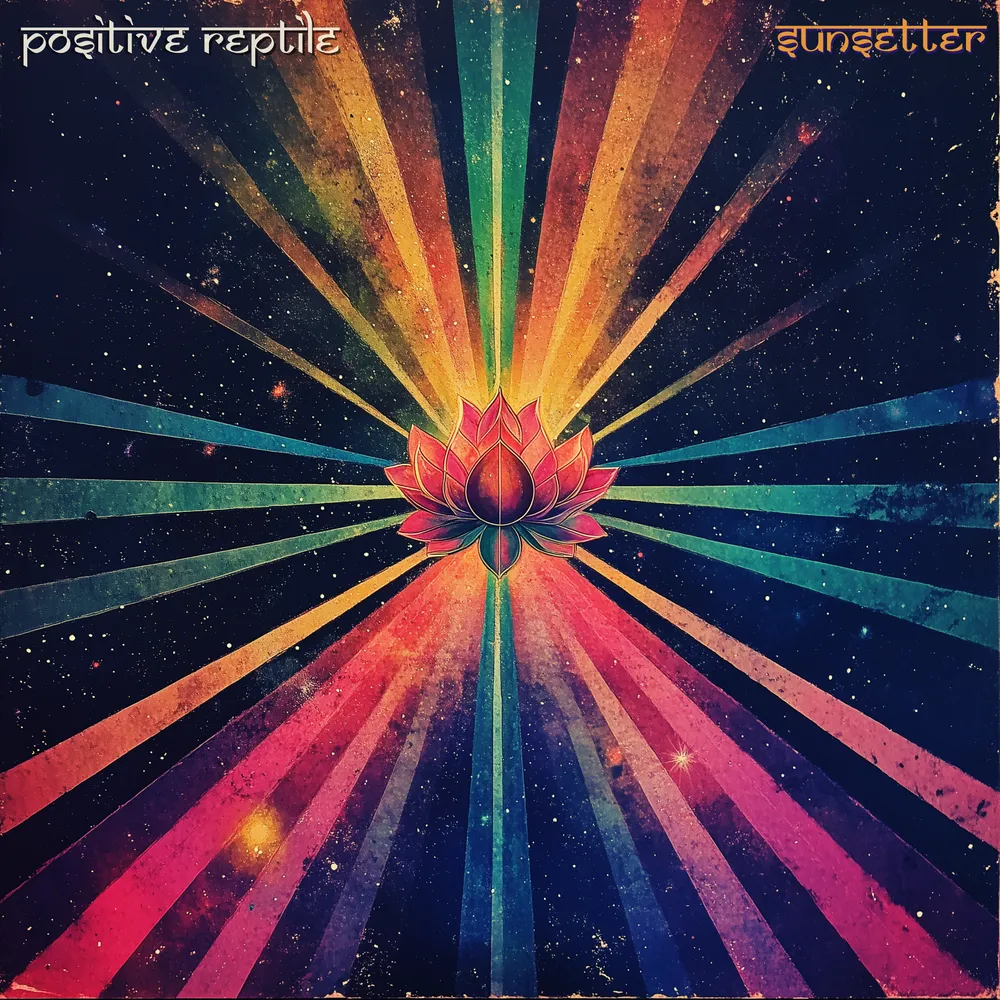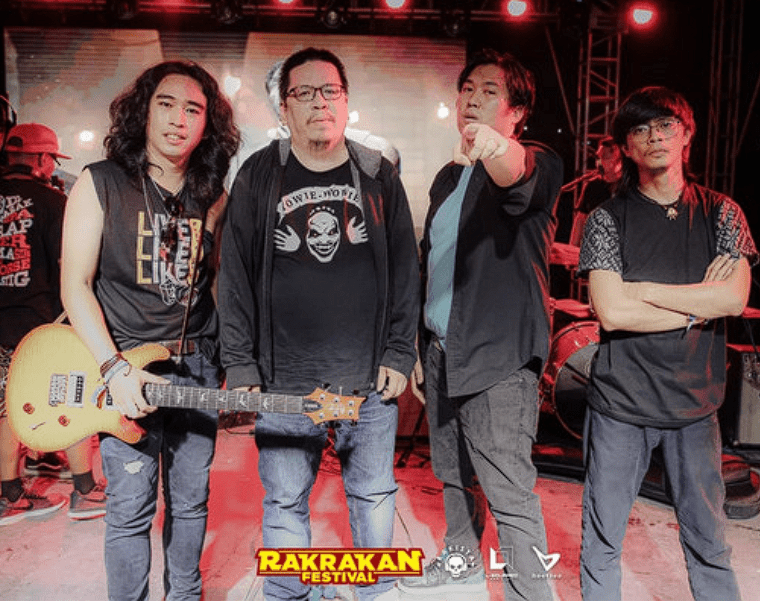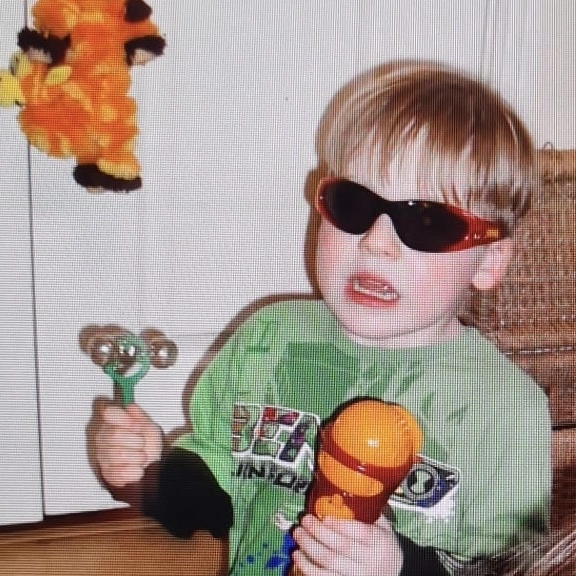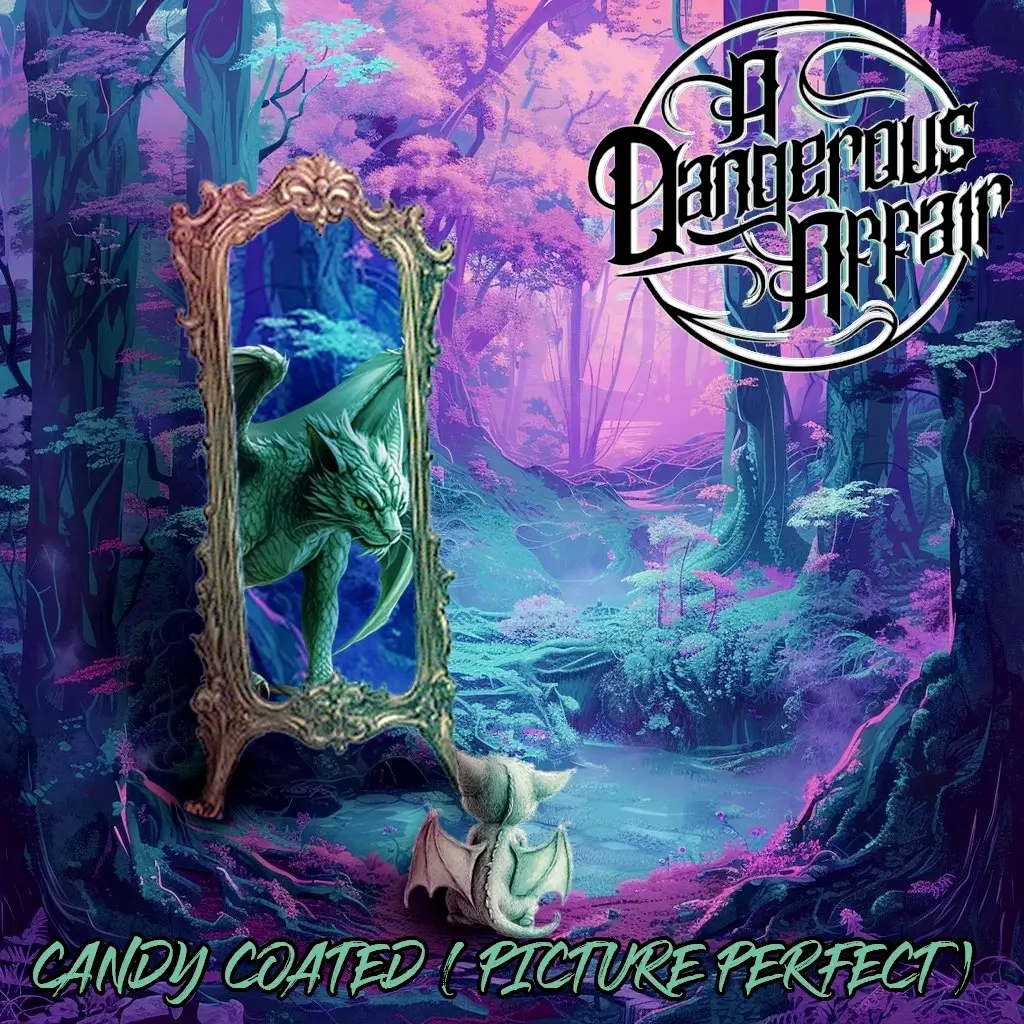So, here’s the situation: MEMENTO MORI, the debut album from Esbjerg-based artist L¥AN, isn’t just an album. It’s the soundtrack to a Psychedelic Horror Book they also wrote. Yes, really. On paper, that sounds pretentious. In practice? It’s surprisingly compelling.
Recorded in a small apartment on what sounds like the barest of setups, MEMENTO MORI comes across less like a polished debut and more like a manifesto. It wants you to know who L¥AN is, what they’ve been through, and why their music matters. Sometimes that level of seriousness can sink a record. Here, it just about floats.

The opening track, “SUN GOES DOWN”, wastes no time telling you what kind of album this is going to be. The production is vast, ominous, and borderline overblown; like someone took a church organ, a funeral procession, and a blockbuster movie trailer, and decided, “Yes, this is how we start.” It’s cinematic to the point of absurdity, but that’s also why it works. L¥AN doesn’t ease you in; they set the tone with all the subtlety of a hammer drop. And oddly, it’s refreshing. Too many debut albums stumble out of the gate, trying to be palatable. This one doesn’t care if you’re comfortable. It wants to announce itself, loudly, dramatically, and without apology.
By the time you reach “VICTORY LAP,” though, you’re reminded: this is still a debut. The braggadocio is there, but it doesn’t land with the same conviction as the opener. The chopped-up samples feel more “inspired by” than groundbreaking, and the verses, while spirited, don’t entirely escape a sense of déjà vu. It’s not bad; it’s competent, even fun, but it highlights the tension running through MEMENTO MORI: ambition versus execution. You can hear what L¥AN wants to achieve, even when the track doesn’t quite get there.
Another highlight comes in “NEED YOU NOW,” and suddenly the atmosphere shifts. Gone is the bombast, replaced with something raw and vulnerable. The track is heavy with longing, and it feels lived-in rather than performed. What makes it really click is the feature from Kayla, whose clean, soaring delivery slices through the mix like a ray of light. Her presence doesn’t just complement L¥AN’s, it reframes the song entirely, turning what could have been a one-note confession into a dialogue, almost a tug-of-war. For the first time, the album starts to breathe. It stops sounding like homage and starts sounding like someone laying themselves bare.
The middle stretch of the record pushes into darker territory. “BLOOD ON YOUR HANDS” is stripped down to moody piano lines and guilt-soaked lyrics, like an internal monologue caught on tape. It’s tense, uneasy, and deeply personal, with just enough restraint to keep it from collapsing under its own melancholy. Then, without warning, “JIGSAW FALLING INTO PLACE” shifts the energy entirely; an acoustic-led track that dials up the tempo, restless where its predecessor was resigned. That jump might feel jarring on first listen, but in context, it makes sense. This is an album about fragmentation, about piecing yourself together after you’ve broken apart. The unevenness isn’t a flaw, it’s the point.
The undisputed highlight arrives with “ONE STEP TOO FAR.” Everything comes together here: sparse but haunting percussion, L¥AN delivering their sharpest vocal performance yet, and a guest spot from Ariana Calaeno that transforms the song into something chilling. Her vocals don’t just decorate the track; they haunt it, weaving in and out like a specter. It’s eerie, it’s unforgettable, and it’s the one song where L¥AN fully steps out of the shadow of their influences. This is the track that proves what they’re capable of when the vision clicks into place.
Finally, there’s “REACH ACROSS THE SKY.” After the intensity and fragmentation of the middle, it feels like a release. The production swells with a brightness that doesn’t erase the heaviness of the earlier songs but carries it forward. There’s no false triumph here, no neat resolution tied up with a bow. Instead, it feels like survival; fragile, hard-won, but real. And that’s what makes it the perfect closer. It doesn’t promise that everything is fine now. It promises that things will keep moving, and sometimes, that’s enough.
Here’s the honest part: MEMENTO MORI is messy. It leans heavily on its influences, it risks over-seriousness, and it occasionally drags in its own ambition. But it’s also alive, and more importantly, it’s memorable. The best moments are gripping enough to make the flaws feel more like growing pains than failures.
For a debut, that’s impressive. This isn’t a polished “industry product;” it’s a personal statement stitched together with what resources L¥AN had. And while it doesn’t always escape the shadow of the artists who clearly shaped it, it points toward a voice strong enough to one day stand on its own.
Follow L¥AN
About the Author

A tenured media critic known working as a ghost writer, freelance critic for various publications around the world, the former lead writer of review blogspace Atop The Treehouse and content creator for Manila Bulletin.









